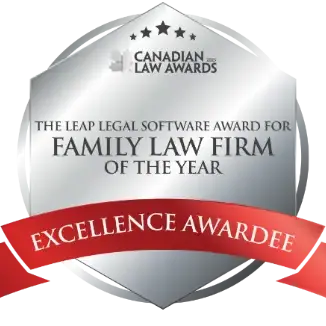
Section 91 restraining orders and for high net worth business owners, BC Family Business Property Restraining Orders, help protect putative equal owners of the family business to get their equal share. Lorne MacLean, QC, founder of MacLean Law has been a leader in seeking division of family profits before trial, capping business income draws and other business withdrawals, getting firm reporting terms, having two signatures required for company cheques, having the company jointly or solely managed, stopping personal benefits and unequal shareholder loan repayments and more.
Meet with Lorne N. MacLean, QC heads our high net worth family property, trusts and tax law team across BC and In Calgary.
BC Family Business Property Restraining Orders Are Crucial In High Net Worth Family Business Disputes
In the latest high net worth family property victory for MacLean Law, MacLean was successful in obtaining protection for his client in the face of allegations the husband needed permission in part from his father, another shareholder, to run the business. MacLean Law’s team provided an analysis of withdrawals, net cash flow, the fact there was a tax free capital dividend account and more to obtain critical protection for the wife in their family business. In JWLP v AP an interim advance for legal fees of $350,000 was coupled with a combined child support award of over $24,000 a month and comprehensive protection terms were made as part of BC Family Business Property Restraining Orders.
[67] Ms. P. seeks an order restraining Mr. P. “both personally and in his capacity as a director or shareholder” of the companies comprising the family business from disposing of, encumbering, assigning or in any similar manner dealing with family property in which Ms. P. might have an interest. Those entities are alleged to include BHWL, Holdco, the JP Family trust, the IP Alter Ego Trust, 447966 B.C. Ltd. (a company that was amalgamated with Holdco in 2016), Source Building Products Inc. (Canada) and Source Building Products Inc. (USA).
[68] Mr. P. is not opposed to a reciprocal order restraining him from dealing with his interests in BHWL and Holdco. He opposes any order purporting to restrain the businesses themselves, on the basis that he does not control them himself and neither they nor IP were given notice of the application.
BC Family Business Property Restraining Orders Made Against Objections By Husband That He Was Only A Part Owner
Hiring a seasoned and savvy BC Family Business Property Restraining Orders lawyer like Lorne N. MacLean, QC means you will get a proper analysis and strategy to combat protestations against terms to ensure a level playing field concerning the operation of the family business to ensure income and assets do not go missing or get diminished. All too often counsel accepts excuses by the controlling business owner that end up with no BC Family Business Property Restraining Orders or lame and vague “ordinary course of business” restraining orders you can drive a truck through.
[69] Mr. P. cites Aquilini v. Aquilini, 2013 BCSC 217, in which the wife sought to enjoin disposition of all corporate assets in which the husband held a “direct or indirect interest.” N. Smith J. refused to grant that relief on the basis that the husband was only one of five owners in the family business – the others were his brothers and parents. He stated as follows at paras. 28-34:
[28] The real difficulty with the proposed expanded order is that it would give the claimant no real protection and would be unenforceable. The evidence is that the respondent is one of a group of five that makes decisions for AIGLP–the others being his brothers and his parents. Decisions are made by a majority vote.
[29] Section 67(1) does not give the court a general power to restrain disposition of property. It only allows for an order restraining a party to the proceeding from disposing of family assets or other property at issue: Miklosko v Miklosko, 2007 BCSC 524 at para 10. Neither the other members of the Aquilini family nor their corporate entities are parties to this proceeding and no order made under s. 67(1) would be binding on them.
[30] The court may restrain a party, in his capacity as a director of a corporation, from causing the corporation to dispose of or deal with property, but such an order can be effective only where the party is the sole or majority shareholder or the directing mind of the corporation. That was apparently the case in Simpson v Simpson, 2009 BCSC 527, on which the claimant relies.
[31] In this case, the order would, at most, prevent the respondent from participating in corporate decisions. It would not prevent the other partners from causing the companies or partnerships to do anything.
[32] I see no prejudice to the claimant if the order is not made. By now the holdings of AIGLP should be well known to the joint valuation expert, who I understand has nearly completed his report. There is no evidence of any real possibility that AIGLP could dispose of assets in a way that would put them or the proceeds of their disposition beyond reach of the claimant if she establishes a claim to those assets at trial.
[33] Having said that, I agree that complexity and extent of the business interests at issue are such that the claimant is entitled to be kept informed of any significant changes that may occur between now and the date of trial. I therefore order that the respondent provide her with a monthly list of all significant transactions made by or within AIGLP. That is essentially a continuation of an interim order that I made on October 24, 2012.
[34] The documents evidencing any such transactions may be documents of AIGLP and as such may or may not be producible by the respondent. That is one of issues to be argued on the adjourned application for corporate documents. But the general information about transactions that take place is certainly within the respondent’s means of knowledge and disclosure of that information is consistent with the ongoing duty of disclosure in the Family Rules, R. 5-1(15).
[Emphasis added.]
BC Family Business Property Restraining Orders And Other Directors and Shareholders
Our team of lawyers led by Lorne N. MacLean, QC marshaled powerful evidence showing the husband was the controlling mind of the company despite him not being the sole director:
[70] Aquilini involved a minority shareholder without de facto control of the company. In this case, however, I am satisfied that Mr. P. effectively controls Holdco and through its voting shares in BHWL, BHWL as well.
[71] I appreciate that IP is the sole director of BHWL and also, through his trust, a shareholder. I also appreciate that father and son may in the past have operated the businesses effectively as partners with equal say and that the transfer of voting control to Mr. P. was a formality for the purpose of succession planning and was not carried out with a view to ceding complete control of the business to Mr. P. during IP’s lifetime.
[72] Nevertheless, that is what they have done in formal legal terms. I am also satisfied that that is what now occurs in practice. As Ms. P. argues, Mr. P. now appears to make the significant decisions for the business himself, including the sale of the plant and the purchase of the lot in Surrey to replace it. When there was a difference of opinion between father and son about expanding the business, the views of Mr. P. carried the day. When Mr. P. needs money, such as when he purchased the family home, he takes it out of the business without having to obtain permission from his father. In summary, there is no basis in the evidence to support the contention that IP has the power today to prevent Mr. P. from taking money out of the business whenever he wishes to.
Spouses Are Putative Half Owners Of Company And Are Entitled To BC Family Business Property Restraining Orders
[73] As in Aquilini, Ms. P. is entitled to monitor what goes on in the companies that are the subject of her claim. As a putative co-owner of the business, moreover, no major decisions, such as the Derwent Way sale, should be carried out without her knowledge and approval, until the trial is concluded.
[74] I agree with Mr. P. that Ms. P.’s right to oversight and approval should not interfere with day to day operation of the business, however. I will therefore restrict the need for her approval to expenditures exceeding $25,000.
[75] I am granting the order as sought in Ms. P.’s notice of application, with the following changes:
(a) The “Family Businesses” will be defined to include only Holdco, BHWL and the JP Family Trust;
(b) Mr. P. will produce to Ms. P. copies of monthly statements from all bank and other financial institution accounts of each of the Family Businesses;
(c) Permitted ordinary course payments will include all payments currently shown on the business’ financial statements, trading in the securities held by Holdco and completion of the purchase of the Surrey property;
(d) No individual expenditures of $25,000 or more, including inter-company transfers, will be made by any of the Family Businesses outside the ordinary course without Ms. P.’s or her counsel’s prior written approval, which must be sought one week in advance and not unreasonably withheld;
(e) Mr. P. will not withdraw any funds from the Family Businesses for his personal benefit, whether as salary, dividends, director’s fees or other benefits, other than his guideline income as fixed by these reasons, amounts he is required to pay under this order for retroactive child and spousal support and the amount set by these reasons as an advance for payment of Ms. P.’s legal fees and an equivalent amount for his own; and
(f) Mr. P. will draw from the Family Businesses, in addition, the amounts necessary to pay for the parenting and reunification counselling, the s. 211 report and the business valuator as contemplated by these reasons, with the final allocation of those costs as between the parties to be determined at trial.
Getting full financial disclosure helps you get your fair share and our top-rated* BC Family Business Property Restraining Orders lawyers will help ensure lucrative profits and property generated from a successful business, professional practice, real estate development or stockbroker’ books of business don’t vaporize before you get your fair share.











